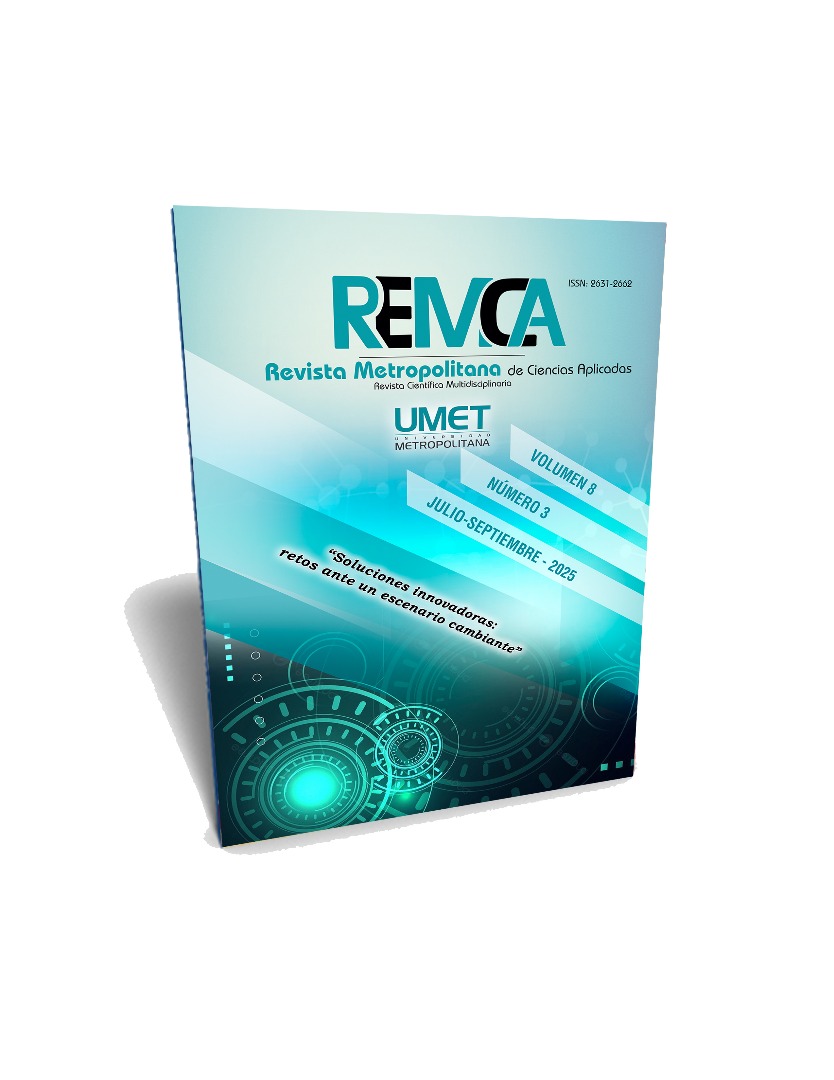Análisis legal de la obligación del Estado ecuatoriano frente a la desaparición forzada en ámbitos nacional e internacional
DOI:
https://doi.org/10.62452/rmw9kp83Palavras-chave:
Justicia penal, reparación integral, normativa internacional, víctimas del delito, falta de aplicación de la ley, garantías judicialesResumo
El estudio analizó la obligación legal del Estado ecuatoriano frente al delito de desaparición forzada, desde un enfoque jurídico que articuló los compromisos asumidos en el plano internacional con su desarrollo e implementación en el ámbito nacional. Se identificaron tensiones entre el reconocimiento formal de normas y la limitada efectividad institucional para prevenir, investigar, sancionar y reparar estos hechos. La investigación adoptó un enfoque cualitativo, utilizando métodos jurídicos y entrevistas semiestructuradas a operadores de justicia y profesionales del derecho, con el objetivo de comprender la brecha existente entre el marco normativo vigente y su aplicación real. Los resultados evidenciaron interferencias sistemáticas del Estado en los procesos investigativos, demoras procesales injustificadas y un bajo nivel de acceso a la justicia para las víctimas y sus familias. Se concluyó que, a pesar de los avances legislativos, persisten debilidades estructurales que impiden la erradicación del delito y perpetúan la impunidad. Como aporte principal, se propusieron estrategias normativas, institucionales y sociales, orientadas a fortalecer el cumplimiento estatal y promover un enfoque integral de prevención y reparación. La investigación destacó la necesidad de armonizar el ordenamiento jurídico con estándares internacionales, consolidar unidades especializadas, establecer un registro nacional unificado y garantizar la participación activa de las víctimas en las políticas públicas. La relevancia del estudio radicó en visibilizar una problemática vigente que afecta derechos fundamentales y socava la confianza ciudadana, proponiendo respuestas viables y sostenibles desde una perspectiva jurídica crítica y comprometida con la dignidad humana.
Downloads
Referências
Dempsey, N., Sarkar, R., & Bassed, R. (2025). Analysing the impact of legal and procedural frameworks on the socio-cultural and political dynamics of extrajudicial killings and forced disappearances. Forensic Science International, 366. https://doi.org/https://doi.org/10.1016/j.forsciint.2024.112305
Ecuador. Asamblea Nacional Constituyente. (2008). Constitución de la República del Ecuador. Registro Oficial 449. https://www.defensa.gob.ec/wp-content/uploads/downloads/2021/02/Constitucion-de-la-Republica-del-Ecuador_act_ene-2021.pdf
Ecuador. Asamblea Nacional. (2021). Código Orgánico Integral PenaL. Registro Oficial Suplemento 180 https://www.defensa.gob.ec/wp-content/uploads/downloads/2021/03/COIP_act_feb-2021.pdf
Guerrero Jaramillo, J. A., & Pilay Anchundia, A. W. (2025). La desaparición forzada en Ecuador y su tratamiento ante la CIDH: análisis jurisprudencial: Forced disappearance in Ecuador and its treatment before the CIDH: jurisprudential analysis. Caminos de Investigación, 6(2), 27–34. https://caminosdeinvestigacion.tecnologicopichincha.edu.ec/ojs/index.php/ci/article/view/92
Martín Molina, C., Castellanos, D., Baena, A., Salgado, A., & Pringle, J. (2022). Forced disappearances and missing people in Colombia, South America. Forensic Science International: Reports, 6. https://doi.org/10.1016/j.fsir.2022.100287
Roman Huanca, C. C. (2024). Propuesta de lineamientos de política pública en reparación integral a víctimas reconocidas y no reconocidas en el Informe de la Comisión de la Verdad Ecuador, periodo 2010-2023. (Tesis de Maestría). Universidad Andina Simón Bolívar.
Toro Paredes, G. R., & Redrobán Barreto, W. E. (2022). El rol del Estado frente a las desapariciones forzadas de personas en Ecuador. Revista Metropolitana de Ciencias Aplicadas, 5(S1), 229–238. https://www.redalyc.org/pdf/7217/721778112027.pdf
Vanegas Fernández, H. G. (2023). El garantismo en el proceso penal ecuatoriano: una tensión perpetua. Opinión Jurídica, 22(48), 1–16. http://www.scielo.org.co/scielo.php?pid=S1692-25302023000200004&script=sci_arttext
Velastegui Vera, A. L., & Zambrano Pilligua, H. J. (2024). Estudio comparado al tipo penal desaparición forzada contemplado en las legislaciones: Ecuador, Perú y México, 2023. (Trabajo de titulación). Universidad Estatal Península de Santa Elena.
Zlobina, A., Bettinsoli, M. L., Miranda, M. P., & Formanowicz, M. (2023). Back to basics: Human rights violations and dehumanization. Current Opinion in Behavioral Sciences, 51, Article 101263. https://doi.org/10.1016/j.cobeha.2023.101263
Downloads
Publicado
Edição
Seção
Licença
Copyright (c) 2025 Jairo Mauricio Puetate-Paucar, Rene Estalin Portilla-Paguay , Brayan Hamilton Chiles-Paucar (Autor/a)

Este trabalho está licenciado sob uma licença Creative Commons Attribution-NonCommercial-ShareAlike 4.0 International License.
Os autores que publicam na Revista Metropolitana de Ciencias Aplicadas (REMCA), concordam com os seguintes termos:
1. Direitos autorais
Os autores mantêm direitos autorais irrestritos sobre suas obras. Os autores concedem ao periódico o direito de primeira publicação. Para tal, cedem à revista, em caráter não exclusivo, direitos de exploração (reprodução, distribuição, comunicação pública e transformação). Os autores podem firmar acordos adicionais para a distribuição não exclusiva da versão publicada do trabalho no periódico, desde que haja reconhecimento de sua publicação inicial nesta revista.
© Os autores.
2. Licença
Os trabalhos são publicados na revista sob a licença Creative Commons Atribuição-NãoComercial-CompartilhaIgual 4.0 Internacional (CC BY-NC-SA 4.0). Os termos podem ser encontrados em: https://creativecommons.org/licenses/by-nc-sa/4.0/deed.pt
Esta licença permite:
- Compartilhar: copiar e redistribuir o material em qualquer meio ou formato.
- Adaptar: remixar, transformar e desenvolver o material.
Nos seguintes termos:
- Atribuição: Você deve dar o crédito apropriado, fornecer um link para a licença e indicar se alguma alteração foi feita. Você pode fazer isso de qualquer maneira razoável, mas não de uma forma que sugira que o licenciante endossa ou patrocina seu uso.
- Não comercial: você não pode usar o material para fins comerciais.
- Compartilhamento pela mesma licença: se você remixar, transformar ou criar a partir do material, deverá distribuir sua criação sob a mesma licença do trabalho original.
Não há restrições adicionais. Você não pode aplicar termos legais ou medidas tecnológicas que restrinjam legalmente outros de fazerem qualquer coisa que a licença permita.




